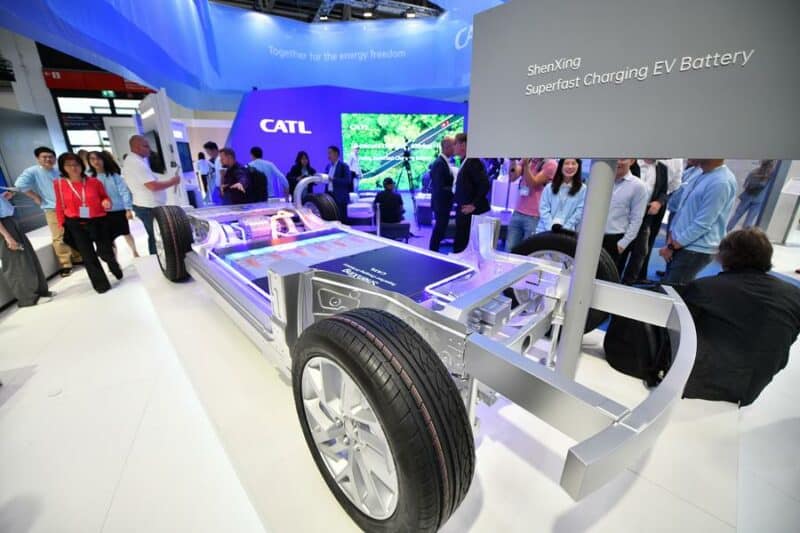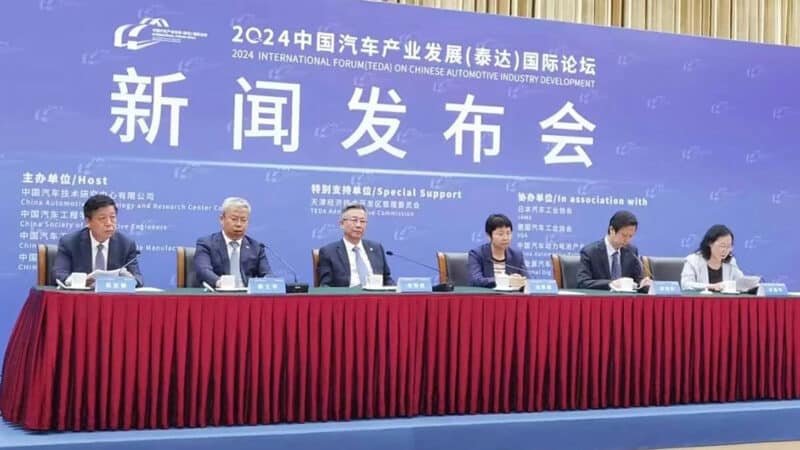According to a China Daily report six battery producers may get a 6 billion yuan (827 million USD) government investment into solid-state battery R&D in a plan launched last year. The government money would be divided between CATL, BYD, FAW, SAIC, Geely and WeLion. The latter is the supplier of Nio’s semi-solid state 150 kWh battery pack. Given that WeLion, a relatively small company, is on the list and other companies such as GAC and Great Wall which have announced solid-state battery achievements are not on the list seems notable.
Quite how the six companies have been selected is a mystery with many companies known to be working on solid-state batteries excluded. All that has been announced is that the six companies are ‘qualified’ without any elaboration over what makes them so. The China Daily article merely quoted sources as saying the initial selection process was “very strict” and that all leading battery companies applied to participate in the project. Furthermore it is not clear whether the money will be divided equally among the six, assuming the report is even correct.
China Daily says that several sources close to the project claim companies will be supported with R&D aimed initially at eight to nine projects which focus on different technical routes to successfully develop such batteries. Currently there are three main technical routes for solid-state batteries namely polymer solid-state batteries, oxide solid-state batteries and sulfide solid-state batteries.
Another China Daily source says that the final number of projects might come down to seven and that CATL has already received support for two of the final seven. CATL in April claimed that it would begin mass-production of solid-state batteries in small quantities in 2027.

A true all solid state battery does not contain any liquid electrolyte and the electrolyte material is completely solid. In the case of semi-solid state the mass percentage of liquid electrolyte is less than 10%. This is the situation in both the battery that WeLion produces for Nio, along with IM Motors’ Lightyear battery. In a quasi-solid state the liquid electrolyte is reduced to below 5% mass.
Currently all solid-state batteries are in the R&D stage or trial production stage. The main things stopping mass production seem to be that material and preparation technologies are not mature enough which makes the production cost too high.
It is not completely clear what the seven major projects are but they are likely to target various roadblocks in bringing the batteries to production. It’s hoped the investment will have a catfish effect to drive the market.
SAIC earlier this month claimed that it would mass produce all solid-state batteries by 2026. And in April GAC said that they had finished R&D of all solid-state batteries and that they would be used in Aion Hyper cars in 2026.
Sunwoda claims to have finished R&D of an all solid-state battery with an energy density of over 400 Wh/kg and plans to produce them in 2026 with an estimated production capacity of 1 GWh. Gotion, another EV battery producer, said it would begin production of such batteries on a limited scale in 2027 and achieve mass production by 2030.
However, speaking just yesterday at the press conference of the 2024 China Automotive Industry Development (TEDA) International Forum Xu Yanhua, Secretary-General of the China Automotive Power Battery Industry Innovation Alliance, said that he didn’t expect solid-state batteries to account for much of the Chinese market before 2035.

True solid state batteries are considered to be the holy grail of battery technology thanks to their high energy density, stability and by extension safety, and the ability to operate across a wide range of temperatures. In a normal battery there is a liquid electrolyte which carries the ions but in a solid state battery all parts are solid.
Current battery technology is rapidly reaching the upper limits of energy density. For liquid high-nickel ternary lithium-ion cells the upper limit is estimated to be 350-400 Wh/kg whereas for lithium manganese iron phosphate batteries it’s believed to be only 250 Wh/kg.
Editor’s note:
The amount especially when shared between six companies is not particularly large. A possible inference from the news that all leading battery companies applied to participate but only six were selected is that these six are the ones the government believes have the most chance of succeeding.
In a surprising twist to the story the original China Daily article has been removed from the China Daily website.
Update: This article was updated on May 30 to reflect additional information from the original China Daily article.
Sources: East Money, Autohome, China Daily



